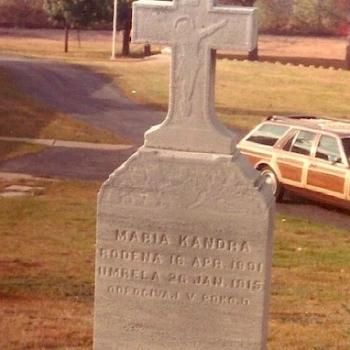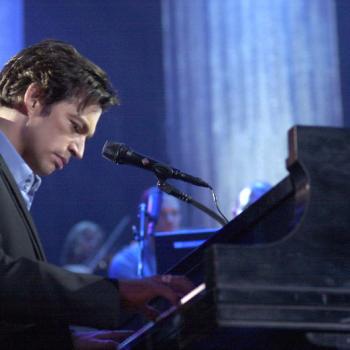This weekend, I’m in Seneca, South Carolina, preparing to direct a parish mission at St. Paul the Apostle parish. I’m preaching at all the Masses. Here’s my homily for the occasion. DGK.
+++
Last week, The New York Times had a story that probably shocked a few people.
It was a column by Nick Bilton, who writes about business issues and technology. He voiced a common complaint, about emails. He said that in December, he had 46,315 unread emails in his inbox. 46,315. When he went back to work after New Year’s, he had zero. He deleted them all. Every single one. Without reading them. He said he was declaring what is known as “email bankruptcy.” He was determined to start the New Year with an empty inbox.
That was pretty radical. I don’t know if that would work for everyone—I’d be terrified of losing something important, even if it was something that had been sitting there for months, unread. But Bilton said he was prompted to do this by the sheer volume of messages he was getting. It was unmanageable. And he’s not the only one it’s happening to.
He cited a study by the Radicati Group, a technology and market research firm in California. The study said people send 182 billion emails each day around the world. That adds up to more than 67 trillion messages a year. The number of active email accounts swelled to 3.9 billion last year. New accounts are expected to grow by 6 percent in each of the next four years.
This is what we have come to. All those billions, TRILLIONS of notices, emails, communications, invitations…we are swamped, absolutely drowning, in messages. Let’s be honest: how many of them do any of us keep, or even remember? How many are important?
On any given day, I find myself getting emails about cat videos…or some fortune that has been left for me in a Nigerian bank account about it…or a request to take part in a survey on a subject I know nothing about. We’re drowning in so much that is unwanted or unnecessary.
But today, we hear a message that IS wanted and IS necessary.
“Come after me. I will make you fishers of men.”
Plain words spoken on the shores of a lake, in a time when there was email. In fact, there was no post office, no telegram, no phone, no email. Just this: a direct invitation.
“Come after me. Let me lead you.”
Those words changed history. And we are here today, in part, because of them—and because of the men who responded. We’re here because fishermen tending their nets listened. Because they dropped everything. And they followed.
In time, what they did, the choice they made, transformed the world.
Two thousand years later, that invitation is still out there. Christ still calls. To every one of us. The words of this gospel are being repeated again and again this morning in churches around the world. Jesus comes to us where we are—whether it’s on the banks of a lake, or an office in Manhattan, or a kitchen in Queens or a church in Seneca, South Carolina. He comes to us and offers that invitation.
Come after me. I will help you do things you never imagined.
Come.
What will be our answer?
Just as Jesus continues to extend his invitation to discipleship to us, this week I’d like to extend my own invitation to you.
Come after him. Come after Christ. For the next three nights, we’ll have a series of talks here at the church, a parish mission, a kind of retreat. I’ll share a few ideas about what I think it means to “come after” Christ—and how those of us seeking to follow Him can do it better. The theme is taken from one of the dismissals at Mass: “Go in peace, glorifying the Lord with your life.” What does that mean? How can we do that in our prayer lives, in our families, in our marriages? How can we do that in the world?
We’re offering the mission twice a day, in the morning after Mass, and in the evening at 7 pm. We’ve made it easy for you in the evening: you can come after dinner and still be home in time to catch “American Idol.”
There are no tests, no hidden fees. I’m not selling anything—except, maybe, an idea. The idea that the call of Christ to the fisherman all those centuries ago is also his call to us today—and there is no better time than now to answer it, to embrace our call as Christians, and especially as Catholic Christians—Eucharistic people. We cannot forget: when the priest or deacon says at the end of Mass, “Glorify the Lord with your life,” we leave the church as living tabernacles. We have received Christ in the Eucharist. We need to then literally bring him into the world, “glorifying the Lord with our lives.”
This week, we’ll give that some serious thought, and explore ways to make those words more than just a concept. We’ll try to make them a reality.
As Nick Bilton wrote: we live in a world drowning with messages.
But this gospel reminds of one message, one invitation, that really matters.
So, check your inbox. Jesus has sent you an invitation. It’s not spam. He’s waiting. Don’t ignore him.
Don’t delete him. Give him a reply.
Centuries ago, some fishermen did and it changed everything.
How will your response to Christ change you?












